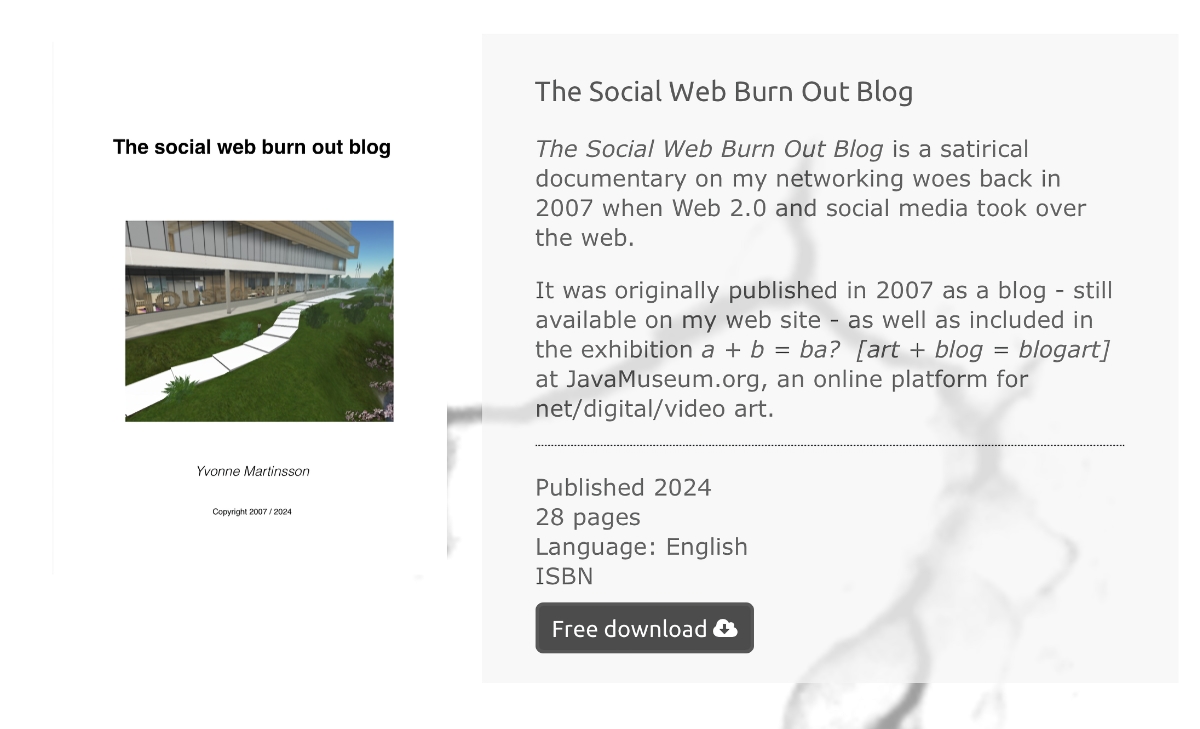The Pleasure of the Social Web > 25/07/09
In 1982, Jauss proposed the term geniessen in his Aesthetic Experience and Literary Hermeneutics to identify aesthetic pleasure. It was a reaction against Adorno’s “aesthetics of negativity,” which he rejected as “aesthetic purism,” as well as against the Barthesian pleasures of the text which, in Jauss’ words, is the “French counterpart to Adorno’s aesthetics in certain aspects” (29).
Jauss’ critique emphasizes the communicative character of art in which he finds aesthetic pleasure. Pleasure, he argues, is produced by affects and is as such the foundation for communication, thus, pleasure of communication is art’s social function (35).Pleasure is produced by affects and is the foundation for communication. This sentence might just as well be applied to the social web. Is the social web a geniessen, a geniessen in communication?
As Deborah Cook argues, geniessen is a “pleasure that is tied to an identification with the ego and which allows the reader to fulfill repressed wishes” (“Reading for Pleasure.” Poetics Today 8 (1987) 3-4: 557-564). I wouldn’t say that it is in itself ‘bad’ that pleasure is tied to the ego as readers, and by extension internet users, can act out repressed wishes (lots of repression will obviously lose its impact in the long run). Yet the pleasure principle is by its very nature preservative, to the point of being conservative. As Cook continues, geniessen “is necessary for the communication of values and norms.”
The question one must ask in an internet environment is what values and norms are conveyed? Facebook, for instance, is an American concept. Stats and rankings are very prolific in an American context (watch the stats for the baseball league for instance), favorites and friends/connections meet up with popularity contests (the prom queen, for instance). The examples given above are features taken from what we call Web 2.0, that is user-generated content, but who are the architects? Not the users. Yet users may delight in the values and norms put forth by the architects of social media. And enhance them.
So, basically we are back at the age of social narcissism, architectured by American norms and values. What would happen if users become architects?
Sources
Barthes, Roland. The Pleasure of the Text. Translated by Richard Miller. Basil Blackwell, 1990.
Cook, Deborah. "Reading for Pleasure." Poetics Today, no. 8, 1987, pp. 557-564.
Jauss, Hans Robert. Aesthetic Experience and Literary Hermeneutics. Translated by Michael Shaw. University of Minneapolis UP, 1982.
Last edited: 2021-01-07 tagged: reading :: digital culture filed under: metatexts :: on reading

